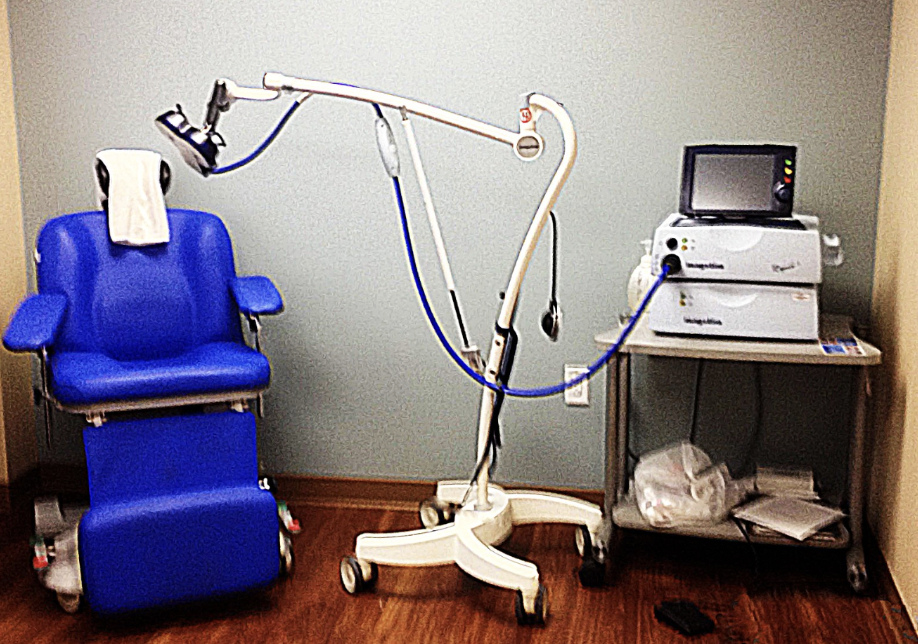Is TMS Therapy Covered by Insurance? Navigating Coverage and Costs in Boston
Introduction
Transcranial Magnetic Stimulation (TMS) therapy has gained recognition as an effective treatment for individuals struggling with treatment-resistant depression and other mental health conditions. If you or a loved one are considering TMS therapy in Boston, one of the most common concerns is whether insurance will cover the cost. In this blog, we will explore the insurance coverage options for TMS therapy, what factors influence reimbursement, and how to navigate the costs effectively.
What is TMS Therapy?
TMS therapy is a non-invasive, FDA-approved treatment that uses magnetic fields to stimulate specific areas of the brain associated with mood regulation. It is primarily used for individuals who have not responded to traditional treatments such as medication and psychotherapy.
Is TMS Therapy Covered by Insurance?
Understanding Insurance Coverage for TMS
Most major health insurance providers, including Blue Cross Blue Shield of Massachusetts, Harvard Pilgrim Health Care, and Tufts Health Plan, offer coverage for TMS therapy under specific conditions. However, coverage policies may vary based on the provider and the individual's medical necessity.
General Insurance Requirements for TMS Coverage
To qualify for insurance coverage, patients typically need to meet certain criteria:
A diagnosis of major depressive disorder (MDD) or another approved condition
Documented treatment resistance, usually defined as a failure to improve after trying multiple antidepressant medications and psychotherapy
A referral from a qualified psychiatrist
Medical records showing prior treatments and their outcomes
Does Medicare Cover TMS Therapy in Boston?
Medicare does provide coverage for TMS therapy if the patient meets medical necessity criteria. Typically, a patient must have:
A history of treatment-resistant depression
Tried at least four antidepressant medications from two different classes
Undergone evidence-based psychotherapy Medicare Part B usually covers 80% of the cost, while patients are responsible for the remaining 20%, which may be supplemented by a secondary insurance plan.
Medicaid and MassHealth Coverage
In Massachusetts, MassHealth (Medicaid) may cover TMS therapy on a case-by-case basis. However, coverage can be limited, and prior authorization is often required. Patients are encouraged to check directly with their MassHealth provider to understand eligibility and coverage details.
Out-of-Pocket Costs for TMS Therapy in Boston
If insurance does not cover TMS therapy, patients can expect to pay anywhere from $6,000 to $12,000 for a full course of treatment (typically 30-36 sessions). Factors influencing cost include:
Clinic location (Boston-based clinics may have higher costs than suburban areas)
Number of sessions required
Clinic reputation and provider expertise
Financial Assistance and Payment Plans
Many Boston-based TMS clinics offer flexible payment options, including:
Monthly installment plans
Sliding scale fees based on income
Medical financing through third-party lenders such as CareCredit
How to Check Your Insurance Coverage for TMS
Steps to Verify Coverage
Contact Your Insurance Provider: Call the customer service number on your insurance card and ask about TMS therapy coverage.
Ask About Prior Authorization: Some insurers require pre-approval before starting treatment.
Verify Your Out-of-Pocket Costs: Check if you have copayments, deductibles, or coinsurance responsibilities.
Consult Your TMS Provider: Many clinics have dedicated insurance coordinators who can assist with the verification process.
***
🌟 Looking for TMS Therapy Near You? Where to Get TMS Therapy for Depression in Boston
📍 Conveniently located near:
✅ Boston, Cambridge, Newton, Alston, Somerville, & Back Bay
Dignity Brain Health - TMS Therapy Clinic
💡 Why Choose Dignity Brain Health for TMS?
✔️ Expert Boston TMS Specialists – Harvard Medical School-trained; Treating depression with TMS since 2017.
✔️ Personalized Treatment Plans – Tailored to your unique mental health needs.
✔️ Insurance-Friendly Process – We handle the paperwork for you.
✔️ Proven Results – TMS can improve symptoms for patients who haven’t responded to medication.
📅 Take the First Step Toward Relief
👉 📆 Find Out If TMS Is Right for You; Book Your TMS Consultation Now (Insurance-Covered)
💬 Still have questions? Contact us today and speak with a specialist about whether TMS therapy is right for you!
***
🌍 Mental Health Resources in Boston for Depression & TMS Therapy
If you or a loved one are struggling with depression, these trusted resources in Boston offer professional support:
🔹 Massachusetts General Hospital Psychiatry Department – Offers psychiatric evaluations, therapy, and medication management for depression and anxiety.
🔹 Boston University Center for Psychiatric Rehabilitation – Specializes in mental health recovery programs, vocational rehabilitation, and outpatient services.
🔹 Samaritans Boston (Suicide Prevention) – A free 24/7 crisis helpline offering confidential emotional support.
Dignity Brain Health is committed to helping patients find the best mental health care in the greater Boston area.
References
Carpenter, L. L., Janicak, P. G., Aaronson, S. T., Boyadjis, T., Brock, D. G., Cook, I. A., ... & Demitrack, M. A. (2012). Transcranial magnetic stimulation (TMS) for major depression: A multisite, naturalistic, observational study of acute treatment outcomes in clinical practice. Depression and Anxiety, 29(7), 587-596. https://doi.org/10.1002/da.21969
McClintock, S. M., Reti, I. M., Carpenter, L. L., McDonald, W. M., Dubin, M., Taylor, S. F., ... & Weiner, R. D. (2018). Consensus recommendations for the clinical application of repetitive transcranial magnetic stimulation (rTMS) in the treatment of depression. The Journal of Clinical Psychiatry, 79(1), 16cs10905. https://doi.org/10.4088/JCP.16cs10905
Philip, N. S., Barredo, J., Aiken, E., Larson, V., Jones, R. N., Shea, M. T., ... & Carpenter, L. L. (2016). Network mechanisms of clinical response to transcranial magnetic stimulation in posttraumatic stress disorder and major depressive disorder. Biological Psychiatry, 81(10), 911-919. https://doi.org/10.1016/j.biopsych.2016.06.007
—
CONTACT INFO:
DIGNITY BRAIN HEALTH
1101 BEACON STREET, SUITE 8W
BROOKLINE, MA, 02446
UNITED STATES
Phone: (617) 855-7288



